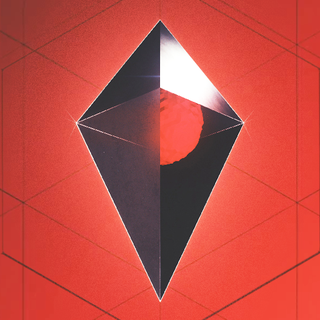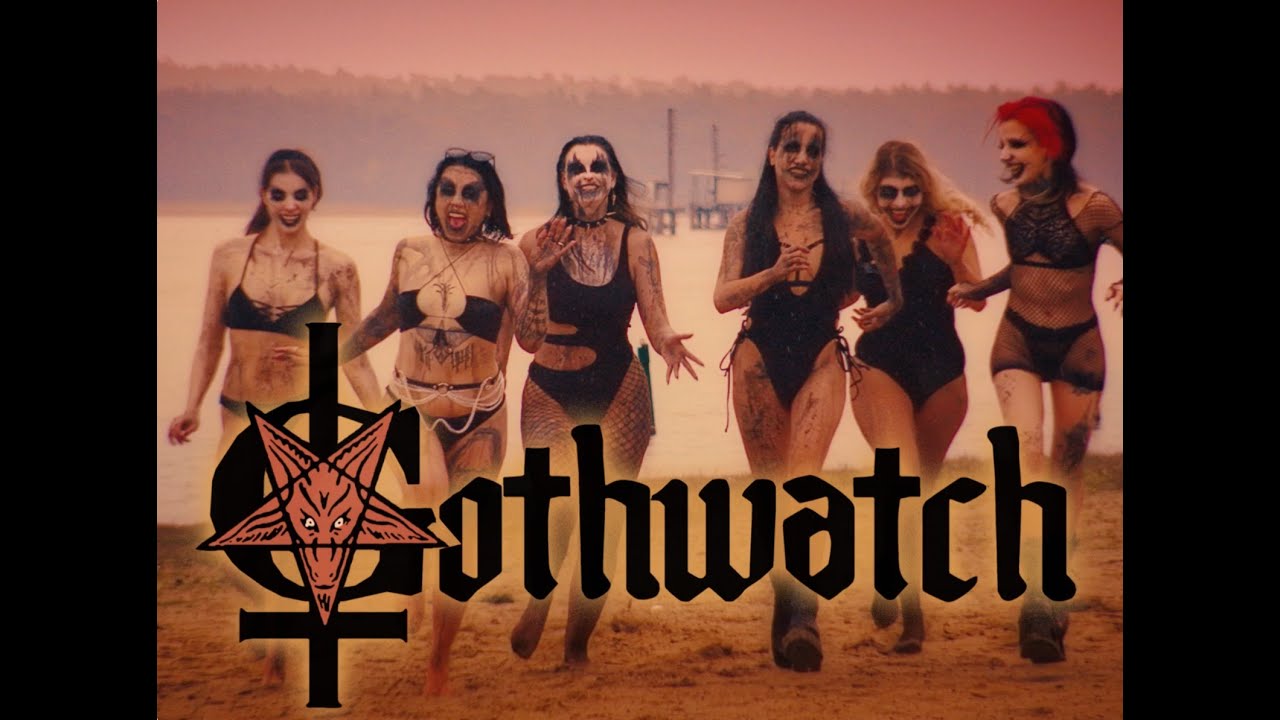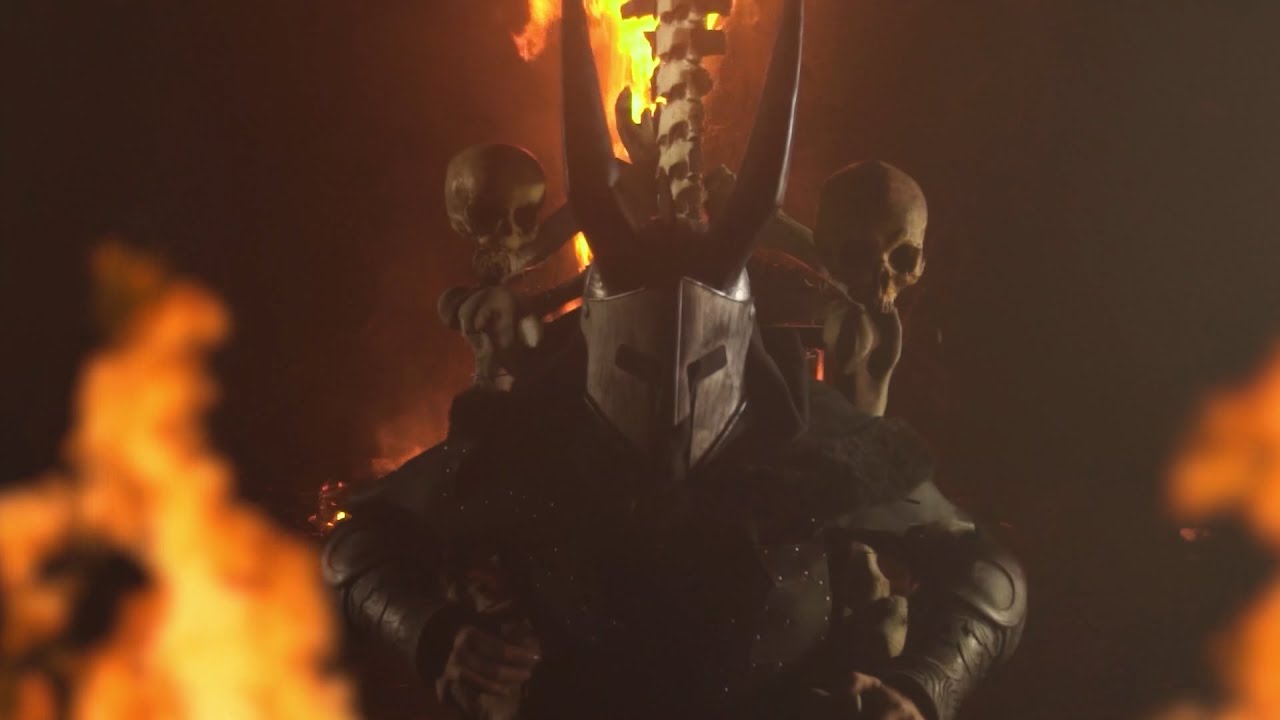- 56 Posts
- 203 Comments
Dungeons and (bad) Dragons

 8·3 months ago
8·3 months agoFred’s absolutely a setup to have Brent Spiner appear as SOMEONE in some episode.
And given Season 3 of Picard, it might even be Data, with his new hybrid with-bits-of-Lore personality.
But it could be a human Soong too, or another Soong-type android (I absolutely hate they call them “synths”, all I hear is Fallout references.)
Edit: It just really stood out to me there was a line referencing that Fred might have “a family”.

 8·3 months ago
8·3 months agoI was raised Catholic in a deeply Evengelical town. The little girls were saying out of the blue that I wasn’t Christian. I was like 8, they were like 6. They were absolutely parroting what their parents said, there’s no way the little girls I played with daily came up with that shit on their own, and since then I’ve noticed that’s one of the “protestant culture” things that gets passed around in those circles and occasionally escapes. That Catholics aren’t Christian because saints or whatever.
They get all wound up about the “pagan” elements of Catholicism then turn around and worship their dollar bill golden idols. Hypocrites!
But basically, Catholics get crapped on when there’s no other minority around and they are tired of talking about Jewish folks.
I don’t practice, I’m atheist, but in the USA from a culture perspective Catholics aren’t in the WASP good old boy group, even if you are otherwise white. And WASP types are happy to let you know it, although its less common than it was a few decades back.
Biden being Catholic, and JFK before him, is basically a dog whistle to certain rightwing groups to make them lose their shit, it’s just less obvious than, say, Obama being black esp if you don’t have a family background that would expose you to that stuff.

 21·4 months ago
21·4 months agoI’m skeptical too.
Lots of software is designed so the delete button just flags an entry so it doesn’t show to low privilege users on the front end, while the data persists in the database where database admins and the like can still access it.
Online it’s wise to assume every website acts like this if you don’t actually run the site yourself with full admin access to the underlying web server and database . Once what you write gets on a site it is permanently out of your control in most cases.

 21·6 months ago
21·6 months agoUh, well…I grew up in a technologically-backward household. So the tech I grew up with was behind the times, even then.
Examples: in the 1980s/1990s, my household didn’t have a basic answering machine, when everyone else did. And our telephone was still the old rented-from-ma-bell rotary phone where you stuck your fingers in the holes and rotated the dial. Modern landline phones in the 90s were NOT rotary, and some were even wireless (the handset talking to the wired receiver on the wall attached to the landline). I think the rotary one we had probably dated to somewhere between the 50s-70s. Everyone else I knew had ordinary buttons on their (landline) phones, we were the only ones I knew with a rotary phone.
We absolutely didn’t have a computer. We didn’t even use the TV we had, it was banned.
My very first exposure to COMPUTERS was therefore at school. School had the big-floppy (that were actually floppy) type, the 5.25" ones OP mentions, and school also had the ones that used the smaller floppy disks.
But my first exposure to computers-for-fun were neighbor’s computers. One neighbor, a grandpa like guy who I think at some point worked trades but was retired (maybe disability), showed me how to make holiday cards on his computer. Like, dot matrix printer type of graphics, very very basic. Thinking back, I vaguely remember the command line, so I think it was a Windows DOS computer we used.
And another friend, a boy 5 years younger than me, had DOS computer at home, so we’d play things like Commander Keen and Lemmings. Since there was no Windows GUI yet, we had to use the command line to launch the game executable. This was like 1993, I think?
I also had a different friend and she had an Apple computer, and I remember King’s Quest.
The town library had computers too, and I played Oregon Trail and the first Sim City on it, before these computers had internet on them.
Later, by middle/high school though, the internet was taking off. And I was an ‘early adopter’ of that because I was a nerd and used it to find other nerds, and I would go to the library and basically do the then-equivalent of social media–individual niche message boards and email groups for my fandoms and interests–before I had a computer of my own. Those were usually Windows 98 or Windows 95 machines. I was even running a message board and website before I had a home computer or my own home internet, using library and the local community college computers to teach myself. It just sucked I couldn’t do it at home.
Oh, and most teens used AOL to chat, although MSN and Yahoo messenger apps also had their crowds. And ICQ existed too and was very popular, although more with the nerdy niche-topic crowd.
Finally, at 18 in 2001, I got my own computer, and that was Windows ME (a SONY VAIO) with one of the early flat-screen LCD monitors which was super fancy for the time. A few years later I upgraded it to Windows XP.
But I didn’t like that it was a propitiatory type that wasn’t easy to upgrade. I was trying to play WoW with friends and doing Wrath-era Naxx would cause my FPS to become utter dogshit because the integrated graphics and the shitty amount of RAM couldn’t handle it. It was a joke in the guild, me disconnecting in fights and my DPS being so spiky. So I eventually did away with that first computer because its poor performance would make me gamer-rage, haha. The first computer I BUILT myself in the early 2000s to replace it had an AMD cpu. I don’t remember what video card I chose, but ANYTHING was an upgrade over the previous computer, lol. And I got a lot more RAM, upgraded from MBs to GBs.
But anyway, since then I’ve mainly had desktops I’ve built myself, although recently I got a backup laptop. It came in unexpectedly useful when I broke my foot and couldn’t sit at my desktop without it swelling to high heaven, so while I still prefer a desktop, I give that laptop some grudging respect, lol. It saved my sanity.
The rate of improvement in computers has massively slowed down, it’s stabilized, so I’m not as interested in continually upgrading as I used to be. Phones and tablets are the thing that took over in the “rapidly changing” niche…but I have something of a phone-phobia, and as a writer can’t write effectively on a tablet, so I’m not much interested in phones and tablets from a tech perspective. They’re underpowered and/or expose me to phone convos which I hate and avoid whenever possible.

 16·6 months ago
16·6 months agoUtility locators.
Everytime someone digs a hole, whether to install a fence post or dig a basement, existing utilities have to be located so they don’t get hit. Its needed literally everywhere rural or city, and very understaffed.
But its long hours and outdoors. Less taxing than other trades though, and women can do it as it doesn’t require much physical strength.

 21·7 months ago
21·7 months agoI’ve nibbled at trying to use Linux on my home computer for years and years, but games didn’t have a good track-record in Wine so I never went over.
I recently heard differently, and tried PopOS, and I’ve mostly been able to get all the games I wanted to play to play, mostly using Steam’s own emulation using Proton, and a few using Lutris.
The only two that gave me trouble were Starfield–it had a bug with Nvidia cards and I had to wait for a Linux driver to be updated with a driver fix. (And honestly after playing Starfield, it wouldn’t have mattered if it never played.) And Crusader Kings III…but only if I had it playing natively on Linux, as it’s supposed to be able to. It kept constantly crashing if I clicked on a character portrait. When I switched to playing it on Proton (so emulating Windows) it’s been rock solid.
I’ve played No Man’s Sky, Cyberpunk 2077, Rimworld, Control, Alan Wake II, Baldur’s Gate 3, and Valheim all successfully. (And Starfield and Crusader Kings III after some troubleshooting.) Those are modern enough that I don’t feel any more disadvantaged gaming on Linux than I did on Windows (accounting for my last-gen hardware and such.)
Oh damn, didn’t know he’d written more than the original 3
When I was in middle school, Sabriel was a stand-alone book with no sequels. It’s STILL weird that there’s other books in the series!
Thumbs up for the World Tree.

 4·7 months ago
4·7 months agoThe topographical features of the cave walls could also have inspired the artists’ imagination. Cave dwellers may have experienced pareidolia, the psychological phenomenon of seeing unintentional forms in nature, like seeing shapes in clouds. If a bulge of rock looks a little like a horse’s head, the artist might imagine the complete form, filling in the rest of the details.
For example, one newly discovered horse image measures around 460 x 300mm and is painted in red using variably spaced dots. It depicts the head with the corner of the mouth, an eye, an ear, and the beginning of the cervico-dorsal line. The figure makes use of natural features of the cave wall, with cracks in the rock incorporated into the outlines of the head and chest. The cervical-dorsal line adapts to a concave area of the wall.
I guess previously scientists were looking at the art like how you or I might look at a horse drawn on a piece of paper, but some of the art was more like going up to a funny rock sort of shaped like a horse, and adding onto it/altering it in order to show others how much like a horse (or whatever) the funny looking rock is.
Which kind of crossing between artistic mediums, from 2D painting to something more like sculpture.
Anyway, this is cool. I didn’t really consider that someone might do that with their art before reading this article.

 191·7 months ago
191·7 months agoI’ve never been a huge fan of “adult animation”, or really animation in general. So I had to get over that hill of bias. But once I did, I found I enjoyed this show. Those Old Scientists on Strange New Worlds is actually what made me go back and give Lower Decks a second try.
Anyway, I’m excited to see where season 5 goes. I also kinda want another live-action crossover.

 161·8 months ago
161·8 months agoWe might need to define “unhealthy” here. Mine is going to be different from other people’s.
Regarding food, I believe the pop definition of “unhealthy” is wrong. As far as I can tell, after having worked in the food industry on the regulatory side, and after having tried to understand nutrition from a truly scientific standpoint, the biggest goof people make is portion size, and, less commonly, having too “small” a pool of foods they’ll eat so certain vitamins/minerals are lacking. The rest of it with added sugars or fat or this or that ingredient being “bad” is smoke and mirrors. Portion size is really, really, really fucking important.
You can be healthy eating just about anything (even McDonald’s) as long as the portions are appropriate for your size and amount of exercise, and so long as your diet is varied enough overall to bring in enough vitamins and minerals. So, eating 3 super-sized meals at McDonald’s might screw you up because the calories are too much for your level of activity, but if you scale it back to 1 a day and keep the meal size “small”, or even eat a happy meal as an adult, you’ll be ok.
Regarding vitamins and minerals…in the modern day, people tend to be deficient in vitamin D because they don’t get enough sun, so that sometimes needs to be supplemented. And individuals will sometimes be deficient in iron or vitamin C. I supplement with C because I tend not to eat many foods with it, and D because I’m a vampire-like nerd that stays away from the sun.
Anyway. To get back to the question, I basically eat what I want, without regard for whether pop culture thinks it’s bad or not, but I pay attention to portion size and I do not snack. I’ve sometimes fallen into keto behaviors or one-meal-a-day but I don’t follow either with any dedication, my natural patterns just fall close to those.
Do I sometimes buy and eat things that are unhealthy for me? Well, by MY standards…not really. I understand nutrition, and I understand portion sizes, and it’s not all that hard for me to eat appropriately for my size without worrying about whatever the latest health food fads are blabbing on about. And because I understand what I’m doing, and I have control of it, I don’t feel guilt.

 111·8 months ago
111·8 months agoEdit for others: Looks like I fell for your troll ragebait account.
(Or rather, it looks like your type of account has followed its propaganda marching orders from reddit and other places to make Lemmy shitty too.)
(For those unaware, pop fandom spaces are infiltrated by people stirring shit to keep a cultural miasma of misery going on, even for people who disconnect from overtly political/news subs as an attempt to try to avoid it.)
Still, I think what I said is useful, so I’ll leave it up for lurkers.
I’ve seen mindsets like yours coming into book fandom more and more as the years have gone on.
I’m going to say some things from a meta perspective that you might not like. And while I’m making assumptions, and they might even be wrong about you in particular, I think there’s still worth in trying to see my perspective, and trying to understand WHY I am saying what I am saying, and why I’m saying it in response to your post at this particular point in time, even if I’m wildly off base with you as an individual. You’ll probably learn more from doing that than by trying to get into a one-on-one argument with me over details. Like, even if I’m wrong with you–WHY did I choose to say this right now in response to your post? What details in your post made me react in this way?
So, as far as I can tell, looking in from the outside, it looks like takes like yours arise when someone is raised in a religious context, following a holy book of some sort (Bible, Book of Mormon, the Koran–any writing really that is supposed to be your highest moral guide), and then either has not left that religion, but is trying to understand other people’s moralities through the same lens because everyone they personally know forms their morality from the bible or another holy book (so surely everyone else must too? And maybe other people use Star Trek?), or comes from someone who HAS left but hasn’t yet examined old habits left over from that upbringing, and and thus brings them into new spaces, as you seem to be doing here with Star Trek.
Like, I see religious folks, or recently ex-religious folks who have not yet examined their inner drives to get over-involved with the media they consume. They interact with their show the same way they would interact with their church, or with the Bible or another holy book. Even if they claim they are no longer religious, they were still raised in a religious environment which has an effect on habits and thinking esp. re: the topic of morality, and emotionally fandom spaces and fandom drama can feel a lot like church from a socializing and discussion standpoint, so old habits of churchy stuff sometimes seep into fandom.
But not all people interact with stories in this way. In fact, when you look at how people actually interact with media, people often take bits and pieces here and there. They agree with some stuff, disagree or just ignore others, and transform things too. You can truth-check this by looking at your peers in school. How many times did a teacher say something, and someone next to you said it was bullshit? People take in, reject, and transform information all the time. Words are not a total telepathic mind-control, people have agency.
I’m a writer, and it’s fairly common to see a reader interact with what I said and take a totally different insight from what I said, because all of their life experiences are getting tangled up with whatever story I was trying to tell, and that MIXTURE is showing them something new that I might never have realized or thought of. And this is normal–this is how humans interact with fiction.
The idea that a work of fiction has to demonstrate moral things perfectly or else be doomed as irredeemably flawed is really in my opinion more of a religious-brain thing. And no, maybe you didn’t say that directly, but I question the drive behind why you posted this post, listing the things you did. I question your motivations and assumptions. Approaching Trek asking the questions you do doesn’t align with how people actually interact with media in my experience, but it does align with how I’ve seen people utilize religion, and holy books in particular.
I’d encourage you to look up a community college and see if there’s any ethics classes you can take. I had to take an ethics class for the degree I was working on. I didn’t actually want to, as I’m in my 40s and comfortable with my sense of morality–but it ended up being shockingly useful, because it laid out different frameworks in which people can evaluate the morality of something, and the pros and cons of each. It kind of started with the “gut feeling” a lot of people use when they feel more than think, then progressed through religious frameworks, then a few philosophers, and then storytelling frameworks, and basically gave me a lot of different and new tools to evaluate things I hadn’t explicitly had before. It was very useful, much to my own surprise, and I’d recommend the experience to everyone if they go to college.

 161·8 months ago
161·8 months agoWhile I think in theory it’s possible for them to work–and they might indeed work for specific people with specific needs–a percentage of people using them are probably of a similar type to others who have gravitated towards food fads through the past century.
Like, if you hit up the Wikpedia or some history site and look at food/diet ads from 100 years ago, those products look pretty ridiculous to modern eyes. But they’re marketing the same thing, right? Health? Convenience? They’re targeting people who are desperate for solutions to their problems, using marketing language common to that era.
And I think a large percentage of these meal replacement products are doing the same thing to modern people, that all the “health food” stuff from decades prior did to our grandparents and great-grandparents. People are, after all, people, and it’s easy to fall for marketing regardless of what era you live in.

 5·8 months ago
5·8 months agoThank you!
(I had to check I didn’t secretly have that one already too–this time I don’t, but it’s going on my wishlist.)

 6·8 months ago
6·8 months agoGah, that’s exactly what I want, I just have no budget for it atm. Going on my wishlist for sure.
I wonder if there’s less-polished tools (FOSS) out there that can do something similar?
Edit: Wow, I’m a dummy, I already own it, I’ve just never installed it. Ha! Thank you!

 3·8 months ago
3·8 months agoI know you’re meme-ing, but bear with me.
Media tends to present things as black-and-white because it makes for an easier story to digest. The occasional downside is that people take in the media without adequately critiquing it or pulling it apart and thinking about it. So you get your “something something dark side”, or other people operating on advice about anger that they got from children’s shows when they were 5.
Anger…yoked to the PROPER cause…is powerful. It can be useful as all hell.
Waking up my anger is how I got myself out of an abusive home–it gave me the ability to act instead of just staying there frozen. So, being motivated by my anger got me out of the situation, which bettered my entire life.
Anger is also how I broke the cycle of abuse, funnily enough. I got so angry that they DIDN’T break the cycle for my sake that I dove head-first into self-improvement to figure out how not to repeat it myself. Anger at them being stupid failures is how I drove myself to be better.
Sure, you can think of anger as something that only ever is destructive–but in the real world, that’s not true. It’s a kid’s tale. You can yoke the motivating factor of white-hot anger to get you out of shitty situations or to improve yourself…and you won’t actually get black veins crawling over your skin and red glowing eyes.

 7·8 months ago
7·8 months agoPeople underestimate how powerful anger yoked to the proper cause can be.

 1·9 months ago
1·9 months agoThis was a smaller moment, but similar to yours, OP, in that it revealed some unconscious thinking in my head.
But I was playing Crusader Kings II quite a few years back. And I basically had a King with the Genius trait and some other stuff I could pass down to his kids. I think I had somehow lucked into the Byzantine Empire or something, so I was basically seducing and inviting a bunch of lovers with other traits from all around the world (north and south, east and west) so I could spread Genius around. I wanted a smart council full of my bastards, heh.
So my genius slut-king has a bunch of kids. I’m naming them after my absolute favorite characters from books and such, because they’re part of my family and dynasty–so I’m giving them names that have a lot of personal “worth” to me.
Then I get to the kid in my dynasty who isn’t white, and I couldn’t figure out what name to give her. I had all these awesome names that I was using over and over through the generations in my dynasty, but somehow none that felt “right” for her. I tried and tried to choose a name, and none “fit”.
And after a while, it suddenly hit me in the face how SUBTLE racism can be. This was just a video game, but I had something that was “high worth” to me to give out, these favorite character names, and I was handing them out like candy until I got to the one kid and struggled, making all sorts of excuses why this not-white video game kid couldn’t get the name of this other character I really liked.
Now, if I was doing that in a frickin’ video game, imagine what people are doing with REAL LIFE things that are “high worth” to them. Hiring at jobs, giving gifts and presents, selling a house, etc.
And it wasn’t like I was going around in the game consciously picking which kids to screw over. (I mean, moreso than you usually do in Crusader Kings, the game where people glitch themselves into marrying their horses and creating witch covens with devil-babies so they can spread satanism across the world.) I ended up screwing this virtual kid over because I was going on this “gut feeling” that my really cool favorite-character names just somehow “weren’t right” for her, even though that frickin’ inbred cousin over there with a family tree like a wreath was proudly wearing it already.
So yeah. Learned a big lesson on how internal gut feelings influence you to do racist shit really subtly sometimes.















Not from a video game exactly, but in the early days of the internet, I had urges to delete things instead of putting them into the trash.